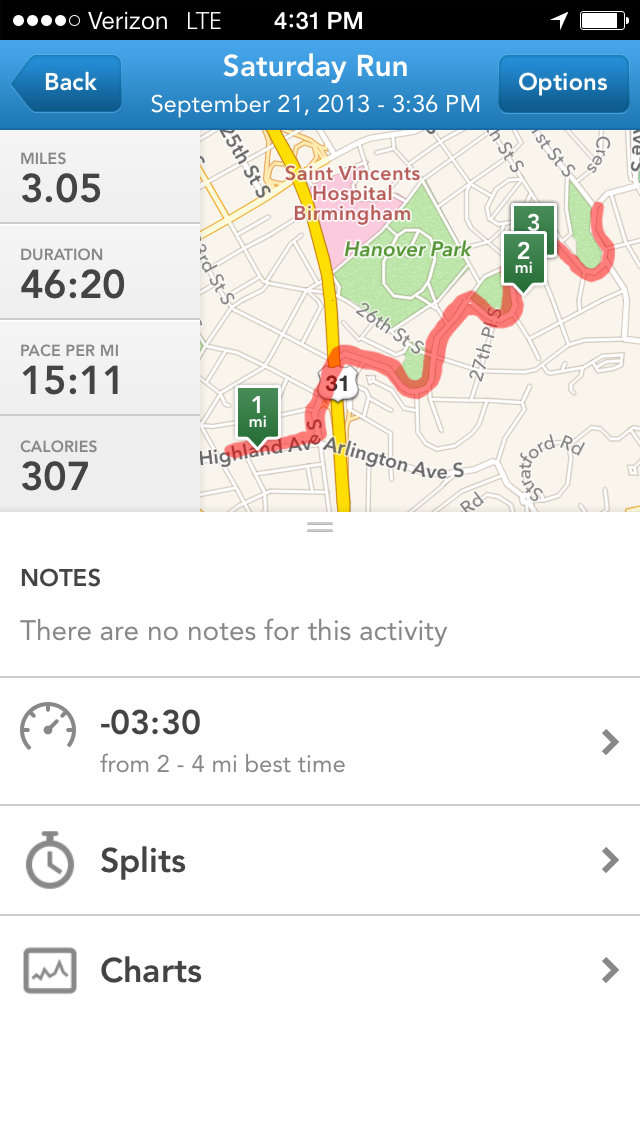 Sometimes, you slow down your pace to build endurance. Other times, you slow down your activities and your life because illness or pain require it. Last Saturday, I ran three miles for the first time. By itself, that run was the longest distance and time I have ever completed. At a few points, I wanted to give up, to go back to my car and go home. Though my knee and ankle twinged a few times, the pain had subsided within 30 minutes of being home.
During the second mile, my pace got difficult. I wanted badly to go faster, to run at the pace I was used to. But I didn't -- I slowed back down and was able to keep going when my side cramped up and my knee tightened. Back in my world of freelancing, bartending and tutoring, I was finding the same thing. By scheduling out every single work commitments, I could also find time to rest.
Sometimes, you slow down your pace to build endurance. Other times, you slow down your activities and your life because illness or pain require it. Last Saturday, I ran three miles for the first time. By itself, that run was the longest distance and time I have ever completed. At a few points, I wanted to give up, to go back to my car and go home. Though my knee and ankle twinged a few times, the pain had subsided within 30 minutes of being home.
During the second mile, my pace got difficult. I wanted badly to go faster, to run at the pace I was used to. But I didn't -- I slowed back down and was able to keep going when my side cramped up and my knee tightened. Back in my world of freelancing, bartending and tutoring, I was finding the same thing. By scheduling out every single work commitments, I could also find time to rest.
This week, rest has been especially important. I was unusually tired after my run on Saturday, but social commitments required me to stay awake and cognizant. A couple days later, the tiredness had progressed into a head cold. Luckily, the cold was short-lived, and forced me into an even slower pace in my work and runs.
Next week, I'll need all the energy I can muster. I have three paid deadlines, three blog posts, four runs and four shifts at work. Needless to say, pacing will all important, and as a result, I have already scheduled most of my commitments down to the hour. It may be a slightly obsessive response, but it's the healthiest coping mechanism I have.
For the next few days, my social media presence will be lessened. It may seem counterproductive, but planning out every run and writing assignment will ease some of the associated pressures. This balance will be crucial for my ability to rest and recover from this darn head cold. Going slowly right now will not only allow me to build back my health, but also to get in shape and hopefully to prevent future illness.